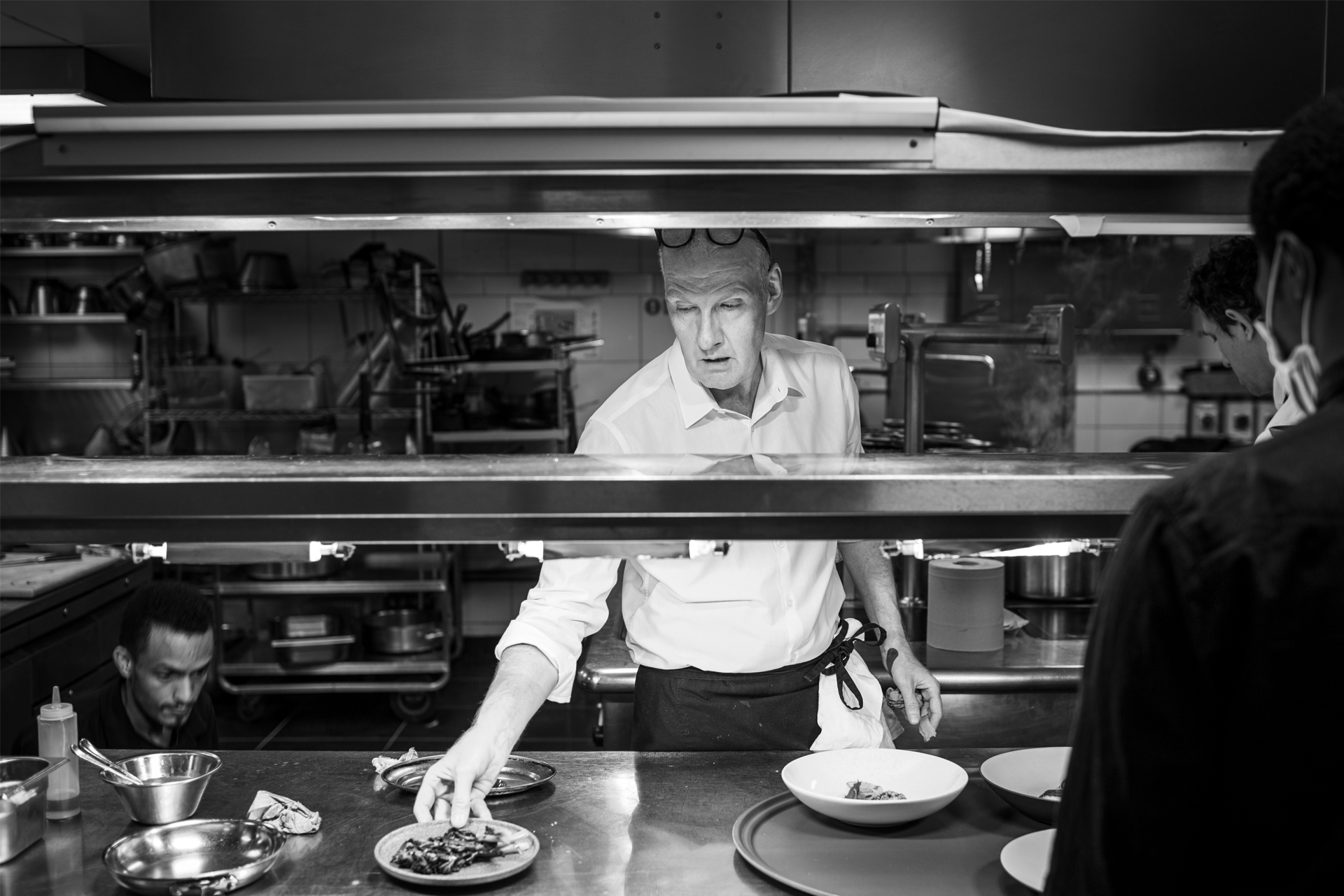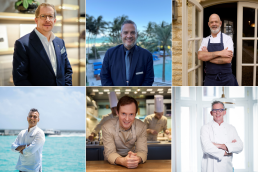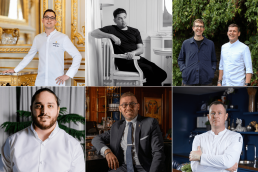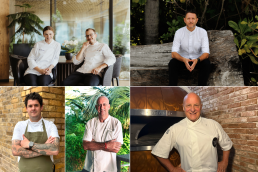Interview: Wild Honey’s Anthony Demetre on the perfect roast chicken and a new Michelin star
As one of the pioneers of laidback fine dining, Anthony Demetre has proven that he has his finger on the pulse when it comes to pinpointing what consumers want.
The chef, who trained under industry titans such as Gary Rhodes, Pierre Koffmann and Marco Pierre White, has helmed several of London’s best-known restaurants during the course of his career. In February, his current venue Wild Honey at Sofitel London St James was awarded its inaugural Michelin Star.
Supper sat down with the chef to talk about his vision for Wild Honey, work-life balance in the hospitality industry, and the secret to cooking the perfect roast chicken.
_____________________________________________________________________________________________________________
When did you fall in love with cooking?
Pretty late by most chefs’ standards – I started cooking in my early twenties. I wanted to be a Naval Air pilot, but I had recurrent knee problems. So I kind of fell into cooking and didn’t do any formal training: I decided to work in some of the top restaurants in the UK and a little bit in Paris and New York and do it that way.
What’s the most important lesson you’ve learned during your career?
Keep it simple. I’m fastidious about seasonality – even though I’ve been doing this for a while, I still get really excited about the seasons, and that is one of the building blocks of my menu. We use as much indigenous produce as possible, from small artisan growers around the country. I was taught that way by the late Gary Rhodes, Bruno Loubet and Pierre Koffman, and it’s the way I operate now.
Congratulations on Wild Honey’s first Michelin star. What’s your vision for the venue?
I love good food, and that can be in any kind of environment. I love the spontaneity of restaurants: my wife Frédérique and I have two teenage boys and we don’t book restaurants weeks in advance. We’re very spontaneous, we want to just rock up at places – and of course, those places have to be affordable. I’ve always championed that kind of operation: at Wild Honey I’ve got a set lunch menu at just over £30, and it encourages that spontaneity – people can just rock up if we’ve got space, and have lunch.
I love the informal approach. We have no tablecloths, no fine napery. Personally, I like that kind of restaurant where you can come and have a dish which has luxury ingredients like truffles, langoustines, or scallops, but at the other end of the spectrum, you can have a simple, country-style terrine. I like a menu to have that scope.
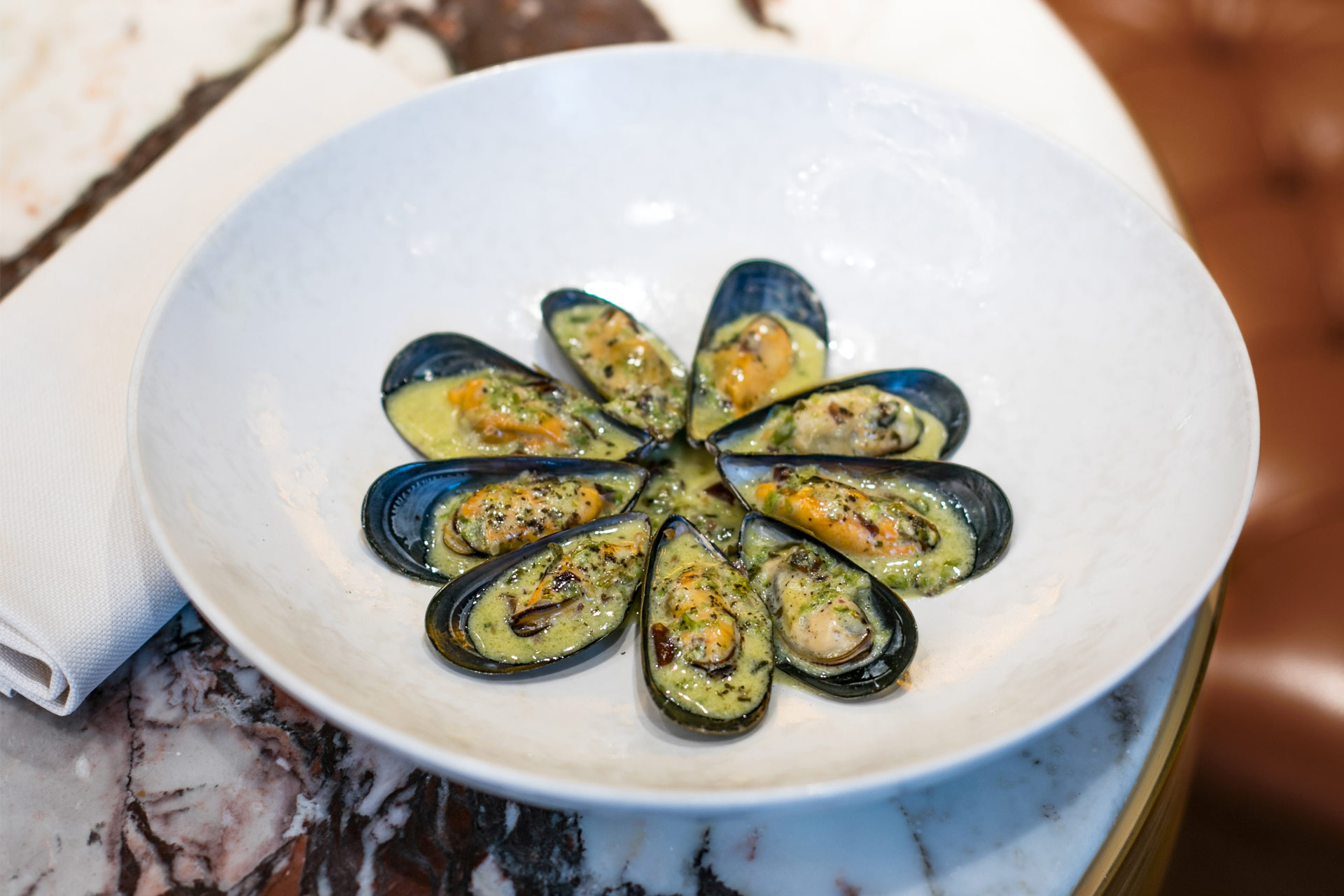
What’s your favourite current dish on the menu at Wild Honey?
[Laughing] Oh my God, all of them! Today, for example, I had a rabbit dish: a saddle of rabbit roasted to perfection, with the legs and shoulders slow-cooked and assembled into a cottage pie. I think that kind of thing shows a chef’s skill in terms of using everything from nose to tail. There’s very little wastage in our kitchen – we change the menu twice daily. But there are some dishes that stay, like my classic English custard tart, which I love.
I like big flavours. But it depends on my mood – sometimes I eat light, and I love a well-composed salad. Some of the best food is the most simple, like a simple roast chicken with a roast juice. I just love that.
Delicious. What’s the secret to the perfect roast chicken?
First of all, find the best chicken you can afford. Make sure it’s out of the fridge for at least half an hour before you even attempt to roast it. Smear it in butter, fill the cavity with half a lemon and add half a bulb of garlic. Cook it for 20 minutes on one side, preferably a cast iron pan. So you cook it for 20 minutes on the leg, flip it over, do 20 minutes on the other leg and finish it with 15 minutes on its back. And you know what? You cook a chicken in 50 minutes. Give it 50-55 minutes and you’ve got the perfect roast chicken.
Your career hasn’t always been linear – you’ve spoken about taking pay cuts and working as an intern to deepen your knowledge. Were the sacrifices worth it?
Yes. In my early years, I found it really tough. We’re talking about an era where you worked double shifts – split shifts every day, sometimes six days a week, and it was mentally exhausting. I always questioned whether I would have the stamina and the longevity to carry on. But I had a habit of making five year plans, and I stopped doing that, because you just put too much pressure on yourself. Now I see life as a 110-metre hurdle race, facing one obstacle day by day and getting over it.
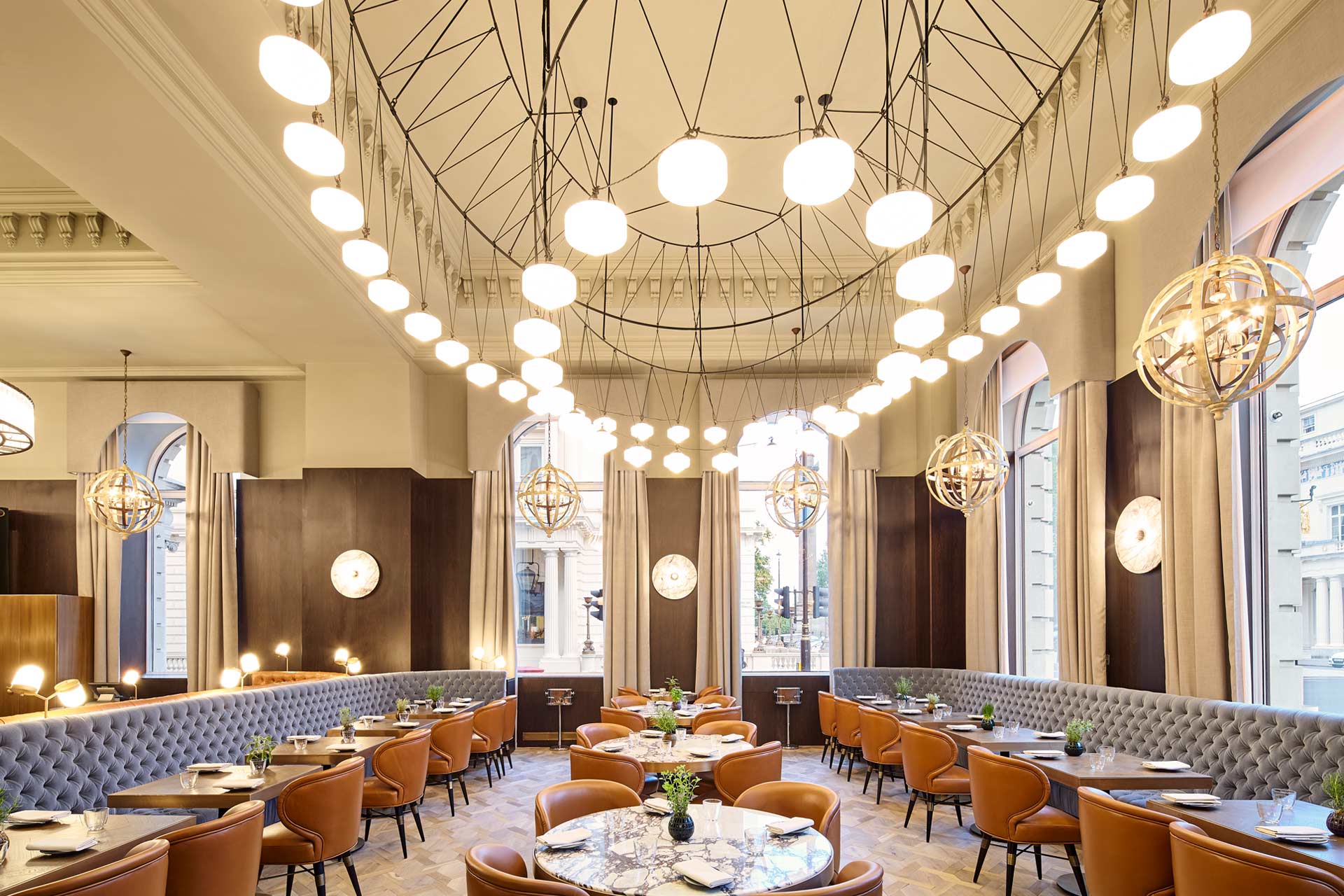
You recently appeared on the Heart of Hospitality podcast and spoke about the challenge of attracting young talent to the hospitality industry. What are you doing at Wild Honey to address the wellbeing issues you see in the sector?
Well it’s about striking a work life balance. You don’t come into the hospitality industry lightly: it’s unsociable, and you’re working when other people are having fun. But we’ve got to strike a balance there, and that means correctly paying people. But it’s not just about pay – it’s also important to make sure that staff stick to the work schedule: we’ve initiated a 48-hour week here at Wild Honey. I close on Sundays and Mondays and for Tuesday dinner, so the team have set days off and they can plan around that. And, yes, it’s tough, because we’re in an industry where you could open eight days a week, so you’ve got to make it a business sacrifice.
There’s no better guide than the Michelin Guide – they seldom get it wrong, and it’s about being consistent. Running a restaurant is like theatre – you’ve got a matinee performance and an evening performance and it has to be the same; day in, day out. It’s very hard to do that over seven days. Closing two days per week has helped enormously with the staff.
We are short staffed, like many other places in town and like many other places nationally and internationally. I think that if we can get into the rhythm of having the attitude where there is a work life balance and people get remunerated properly, that’s got to bode well for the future.
What motivates you?
I’m just extremely passionate: I think whatever creative role you do in life, if you don’t continue to strive, there’s no point doing it. Whether you’re a designer, a draughtsman or an architect, you’re always pushing to be better, and to keep striving. The day I stop doing that will be the day I hang up my apron.
What’s next for Wild Honey?
We’ve achieved great things in a relatively short period, given what’s happened globally with the pandemic. We’ll continue to keep striving and keep it consistent. When we got the star we had a celebration, and I actually said to all the team: “This is where the hard work begins.” Because we’ve achieved that, and we’ve achieved it for a certain style and standard, so now we have to maintain that.
What’s your favourite dish, and who cooks it?
I think it’s a simple roast chicken – but cooked properly. Roast chicken, sautéed potatoes and green salad. The salad would have to be made by my wife, because I cannot make a French dressing like my wife! She makes a vinaigrette that’s to die for; I just can’t make it the same.
Related Posts
28 November 2025
Movers and Shakers: November’s hotel F&B appointments
30 September 2025
Movers & Shakers: September’s hotel F&B appointments
29 August 2025
